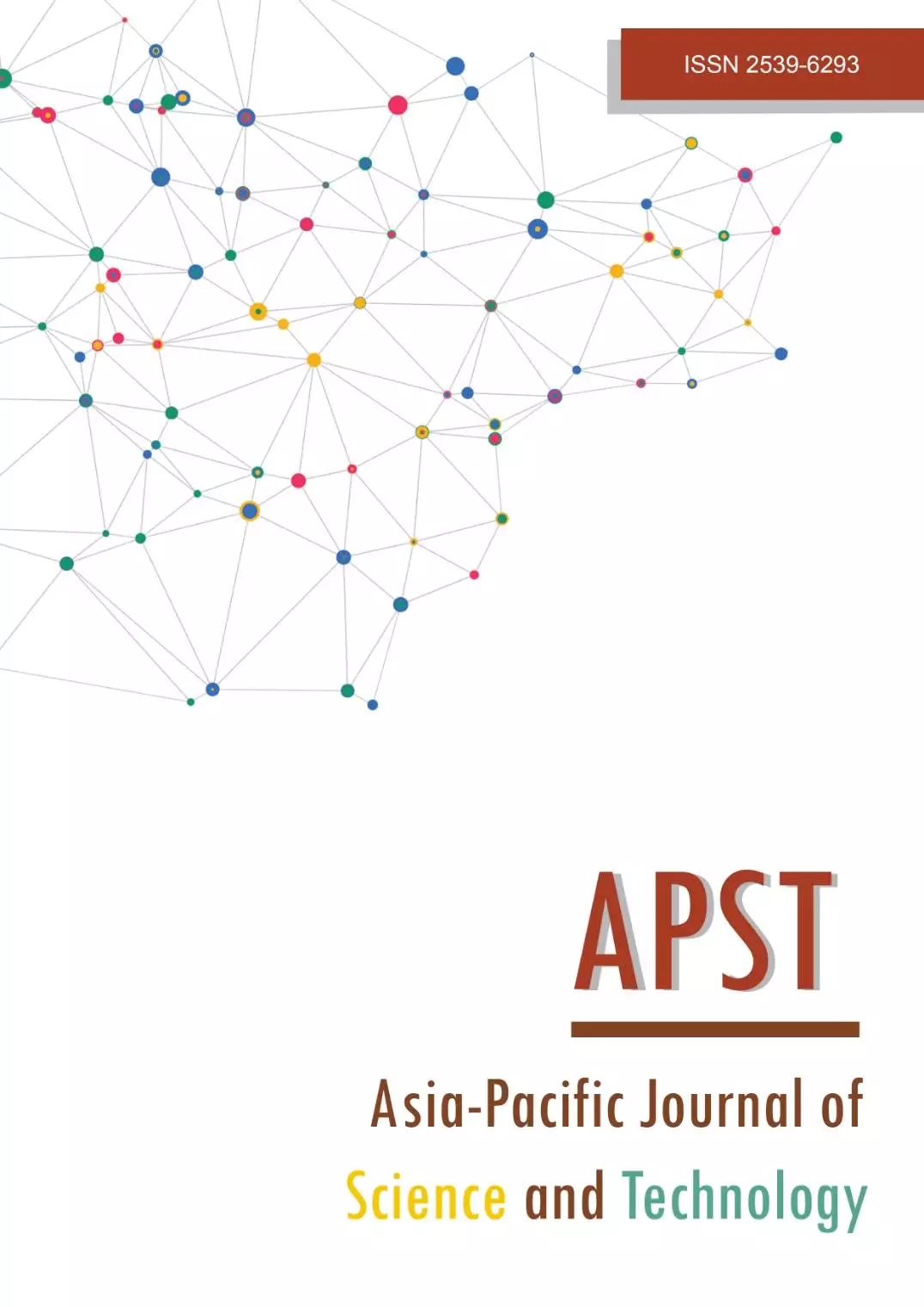Using blockchain oracle for data management: A case study on health insurance network
Main Article Content
Abstract
The health insurance network represents a collaborative ecosystem involving hospitals and health insurance companies, jointly providing medical services while managing their customers’ electronic health records (EHR). Presently, health records are typically confined to individual providers, hindering real-time data sharing with insurance entities and resulting in delayed claims processing. Blockchain technology, renowned for its distributed and decentralized nature, confers essential attributes such as immutability, tamper resistance, and transparency, rendering it a promising solution for enhancing insurance record management and event transactions. By incorporating data security and privacy features, blockchain establishes trust among network participants and effectively addresses interoperability challenges prevalent in current technologies. The proposed health insurance framework adopts R3 Corda, a peer-to-peer permissioned distributed ledger technology, introducing a novel model for sharing health insurance data on the blockchain while automating claim processes. Central to this framework is utilizing a blockchain oracle, a pivotal component facilitating the seamless integration of existing health insurance databases with the blockchain, leading to enhanced efficiency and streamlined claims processing.
Article Details

This work is licensed under a Creative Commons Attribution-NonCommercial-NoDerivatives 4.0 International License.
References
Campbell SM, Roland MO, Buetow SA. Defining quality of care. Soc Sci Med. 2000;51(11):1611-1625.
Liao L, Chen M, Vuong S, Lai X. A novel web-enabled healthcare solution on HealthVault system. In: Chen HH, Daneshmand M, Liu S, editors. The 5th International ICST Conference on Wireless; 2010 Mar 1-3; Singapore. New Jersey: IEEE Xplore; 2010. p. 1-6.
Devadass L, Sekaran SS, Thinakaran R. Cloud computing in healthcare. Int J Students Res Technol Manag. 2017;5(1):21-25.
Jaoude AJ, Saade GR. Blockchain applications-usage in different domains. IEEE Access. 2019;7:45360-45381.
Hölbl M, Kompara M, Kamišalić A, Zlatolas NL. A systematic review of the use of blockchain in healthcare. Symmetry (Basel). 2018;10(10):1-22.
Mendling J, Weber I, Aalst WVD, Brocke JV, Cabanillas C, Daniel F, et al. Blockchains for business process management - challenges and opportunities. ACM Trans Manag Inf Syst. 2018;9(1):1-16.
R3 [Internet]. Corda. [cited 2022 May 10]. Available from: https://docs.r3.com/en/platform/corda.html.
R3 [Internet]. Key concepts of ledger. [cited 2022 May 10]. Available from: https://docs.r3.com.en/platform/
corda/4.8/open-source/key-concepts-ledger.html
Agbo C, Mahmoud Q, Eklund J. Blockchain technology in healthcare: a systematic review. Healthcare (Basel). 2019;7(2):1-30.
Azaria A, Ekblaw A, Vieira T, Lippman A. MedRec: Using blockchain for medical data access and permission management. In: Awan I, Younas M, editors. The 2nd International Conference on Open and Big Data (OBD); 2016 Aug 22-24; Vienna, Austria. New Jersey: IEEE Xplore; 2016. p. 25-30.
Aleksieva V, Valchanov H, Huliyan A. Smart contracts based on private and public blockchains for the purpose of insurance services. International Conference Automatics and Informatics (ICAI); 2020 Oct 1-3; Varna: Bulgaria. New Jersey: IEEE Xplore; 2020. p. 1-4.
Saldamli G, Reddy V, Bojja KS, Gururaja MK, Doddaveerappa Y, Tawalbeh L. Health care insurance fraud detection using blockchain. Seventh International Conference on Software Defined Systems (SDS); 2020 Apr 20-23; Paris: France. New Jersey: IEEE Xplore; 2020. p. 145-152.
Huang J, Qi YW, Asghar MR, Meads A, Tu YC. MedBloc: A blockchain-based secure EHR system for sharing and accessing medical data. In: O’Conner L, editor. The 18th IEEE International Conference On Trust, Security And Privacy In Computing And Communications/13th IEEE International Conference On Big Data Science And Engineering (TrustCom/BigDataSE); 2019 Aug 5-8; Rotorua, New Zealand. New Jersey: IEEE Xplore; 2019. p. 594-601.
Carlos Marinho SS, Filho JSC, Moreira LO, Machado JC. Using a hybrid approach to data management in relational database and blockchain: a case study on the e-health domain. In: O’Conner L, editor. IEEE International Conference on Software Architecture Companion (ICSA-C); 2020 Mar 16-20; Salvador: Brazil. New Jersey: IEEE Xplore; 2020. p. 114-121.
R3 [Internet]. Key concepts of oracles. [cited 2022 May 5]. Available from: https://docs.r3.com/en.platform
/corda/4.8/open-source/key-concepts-oracles.html.
Caldarelli G. Understanding the blockchain oracle problem: a call for action. Information (Basel). 2020;11(11):1-19.
Loukil F, Boukadi K, Hussain R, Abed M. CioSy: a collaborative blockchain-based insurance system. Electronics (Basel). 2021;10(11):1-15.
Radanović I, Likić R. Opportunities for use of blockchain technology in medicine. Appl Health Econ Health Policy. 2018;16(5):583-590.
R3 [Internet]. Key concepts of notaries. [cited 2022 May 10]. Available from: https://docs.r3.com/en/platform/corda/4.8/open-source/key-concepts-notaries.html.


